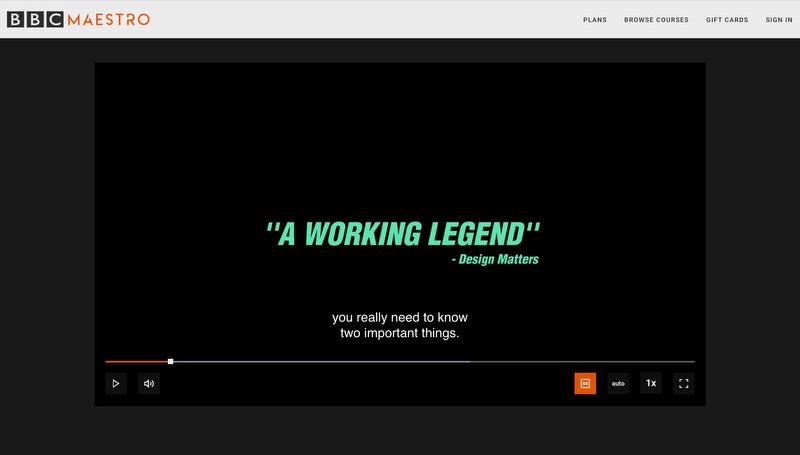It has a similar visual composition: a strong portrait with relevant props.
The biggest difference is it adds more detail to Paula Scher's bio, name-checking a few of her most famous clients.
Why do they do this?
With Headspace, the speaker wants the audience to buy the app, not buy coaching from Knox. So they provide just enough detail for you to respect Knox enough to respect Headspace.
With BBC Maestro, the speaker wants the audience to buy Paula's course, which means selling Paula's expertise more forcefully.
To that end, if you were to go to the website, you'd find a video below the fold in which Paula talks about her course while intercut with big testimonials to amplify her expertise:


